Indian National Congress’ election campaign hinged on five guarantees to the public: 1) Anna Bhagya, which guarantees 10 kg rice per head every month to families below poverty line (BPL); 2) Gruhalakshmi, where every woman head of the family will be given a monthly allowance of Rs 2,000; 3) Gruhajyoti, where households consuming up to 200 units of power will have free power supply; 4) Shakti, where every woman resident in Karnataka can travel free in all but luxury, AC buses; 5) Yuva Nidhi, a scheme providing unemployment allowance of Rs 3,000 for graduates and Rs 1,500 for diploma holders for a limited period.
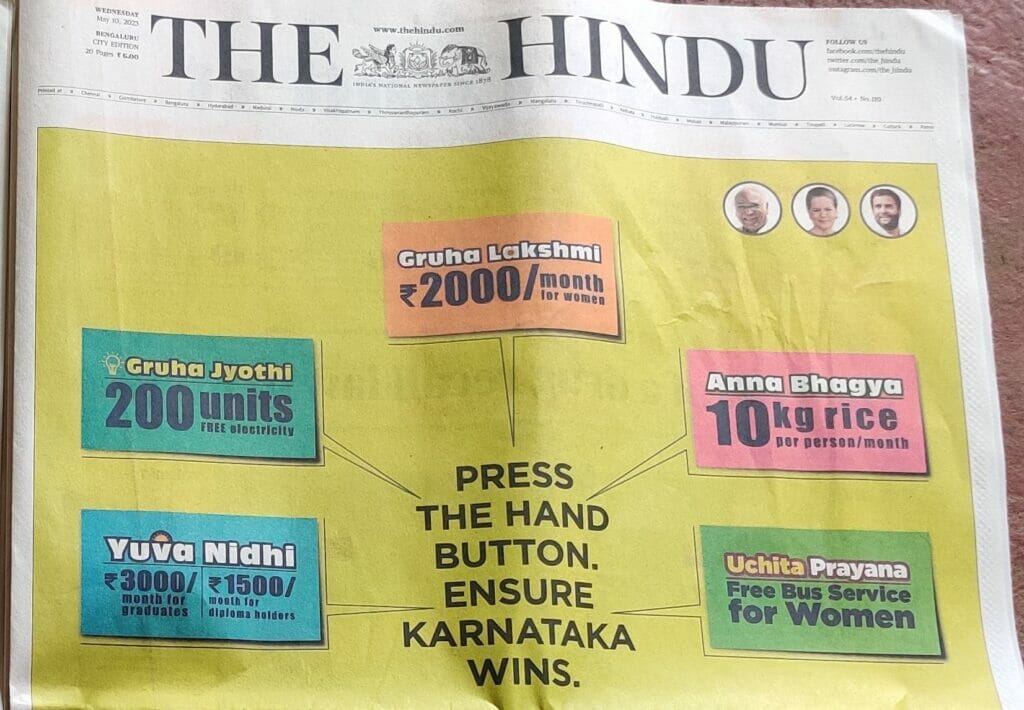
During the first cabinet meeting held on June 1, 2023, Chief Minister Siddaramaiah promised that the government would implement five guarantees within this fiscal year. Since then, the government has issued orders for implementation of these schemes. Here is how you can access or help someone access these benefits.
Shakti Yojane or free bus travel
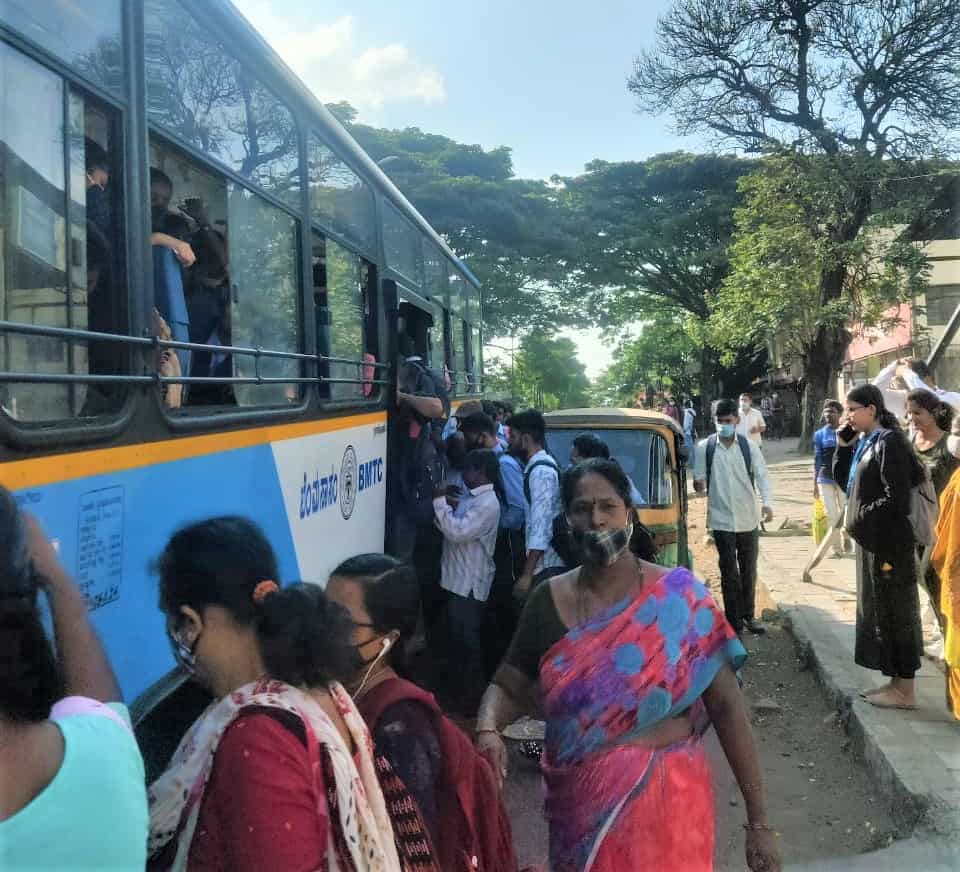
What is the scheme? Under the Shakti Yojane scheme, all women domiciled in Karnataka can travel free in all regular government run buses. Specifically, women can travel for free in ordinary and express buses run by the Bengaluru Metropolitan Transport Corporation (BMTC), Karnataka State Road Transport Corporation (KSRTC), North Western Karnataka Road Transport Corporation (NWKRTC), and the Kalyana Karnataka Road Transport Corporation (KKRTC). The scheme does not apply to luxury or AC buses. It only applies to travel within Karnataka; inter-state travel is not free.
When? The scheme will be operational from June 11th, Sunday.
Who is eligible? All women of all ages who are domiciled in Karnataka, i.e., have a permanent address in the state, can avail these benefits. This means women who have government issued identity cards with a Karnataka address, including students can access these benefits. But women who have migrated from other states for (formal or informal) work or education may not be eligible.
How to access: To avail these benefits, eligible women have to get smart cards within three months. They must apply for these smart cards through the Seva Sindhu Portal. However, the government has not yet issued any applications for these smart cards. Until smart cards are issued, eligible women must carry any government issued identity cards that show a Karnataka address, while traveling by these buses.
Read more: BMTC gets little budgetary support despite escalating losses due to higher fuel costs
Gruha Jyothi or electricity scheme
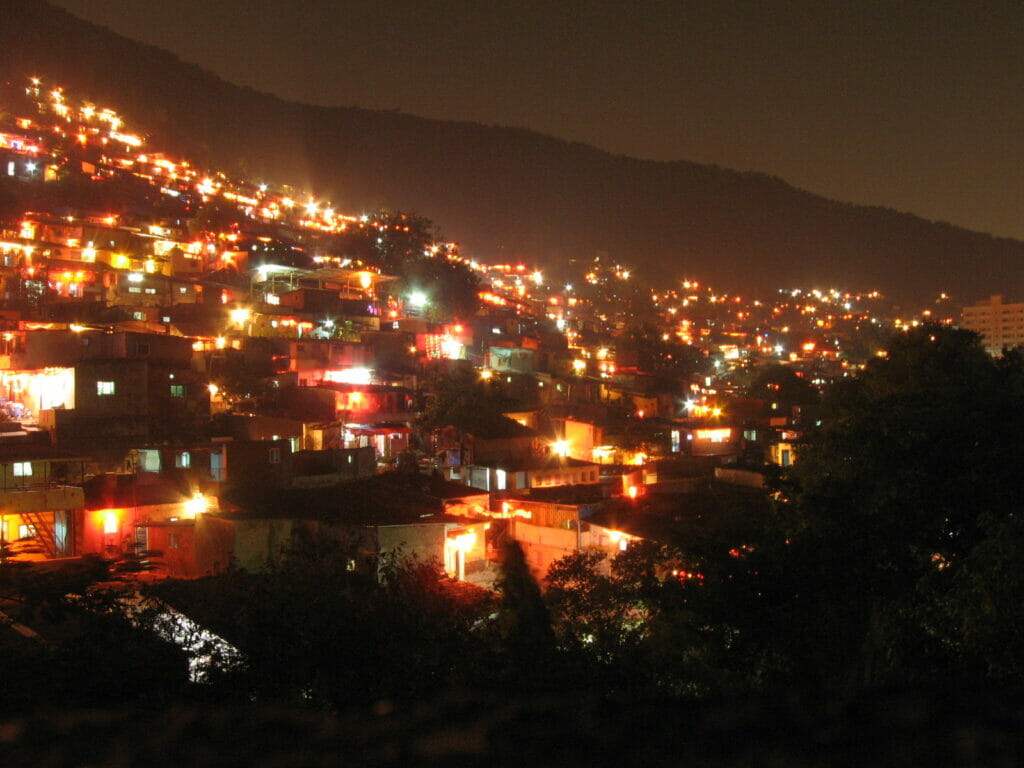
What is the scheme? While the Gruha Jyothi scheme has been called a free electricity scheme in the media, there are several caveats. Households or families that consume less than 200 units will not have to pay a fee. Previous electricity schemes such as Bhagya Jyothi and Kuteera Jyothi will be merged with this scheme.
When? Electricity bills from the month of July (issued in August) will come under the scheme.
Who is eligible? The scheme only applies to domestic households. Each household can register one unique RR number (Revenue Registration number assigned by BESCOM) for the scheme. Even within domestic households, eligibility for the scheme is based on the average units consumed in 2022-23. Households which consumed less than 200 units of electricity on average in 2022-23 are eligible for the scheme. These households can get the 2022 average units consumed plus an additional 10% for free. For instance, if you consumed an average of 100 units of electricity per month in 2022-23, you could get 110 units (100 units +10% of 100) free.
If the household consumes more than this allotted amount of electricity, but is still within the 200 units limit, only the excess amount will be billed. However, if a household consumes more than 200 units of electricity, they will be billed for the entire amount. For instance, if your allotted amount is 110 units but you consume 150 units in a month, you would be billed for the excess 40 units only. But if you consume 210 units, you would be billed for the entire amount.
How to access: To avail these benefits, consumers can register on the Seva Sindhu Portal with their RR numbers and upload proof of residence, i.e. documents like Aadhaar or a rental agreement must show the same address as the registered BESCOM meter. Applications will be open from June 15th. Importantly, one can also apply for the scheme offline at any Bangalore One, Grama One or Karnataka One centers.
You can also check out this FAQ by BESCOM: https://bescom.karnataka.gov.in/storage/pdf-files/aetomd/GruhaJyothiFAQ.pdf
Gruha Lakshmi or monthly financial assistance scheme
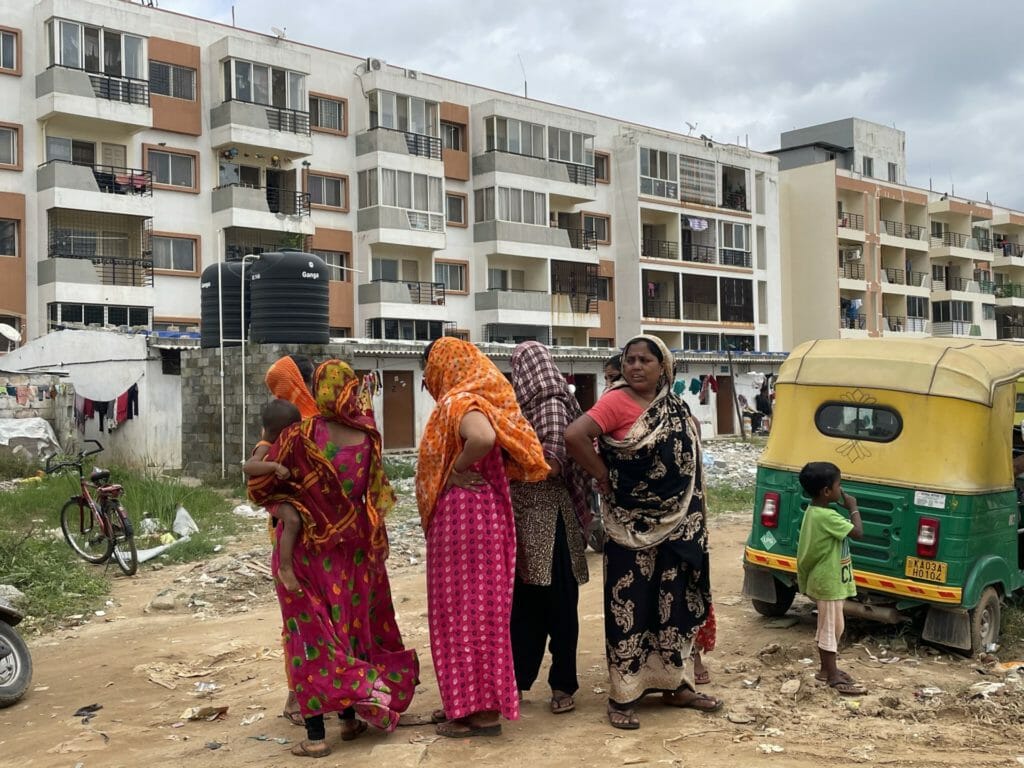
What is the scheme? The Gruha Lakshmi scheme allows for monthly financial assistance of Rs 2,000 to women heads of the household.
When? The scheme is likely to be operational from August 15th. Applications must be submitted between June 15th and July 15th.
Who is eligible? The scheme only applies to women heads of households who hold a BPL (below poverty line), APL (above poverty line) or Antyodaya card issued by the Department of Food and Civil Supplies. Women who pay income tax or GST or have spouses who do so are not eligible. Female head of household can be self-declared, but only one woman from each house can apply. Applicant’s bank account must be paired with Aadhar, according to the government order.
How to access: To avail these benefits, eligible women must apply on the Seva Sindhu Portal between June 15th and July 15th. Applications can also be made in person, but the locations for physical applications have not yet been declared.
Anna Bhagya or 10kg rice scheme
What is the scheme? The scheme provides for 10 kg of rice per month to every member of families, which are below poverty line.
When? The scheme will be operational from July 1st.
Who is eligible? All households which have a Karnataka state government issued BPL or Antyodaya Card are automatically eligible. There is no cap on number of family members.
How to access: There is no need to apply for this scheme. All BPL and Antyodaya Card holders automatically qualify from July 1st.
Read more: Interview Amit Basole: “PDS the most effective safety net, cash transfers the worst”
Yuva Nidhi or unemployment support
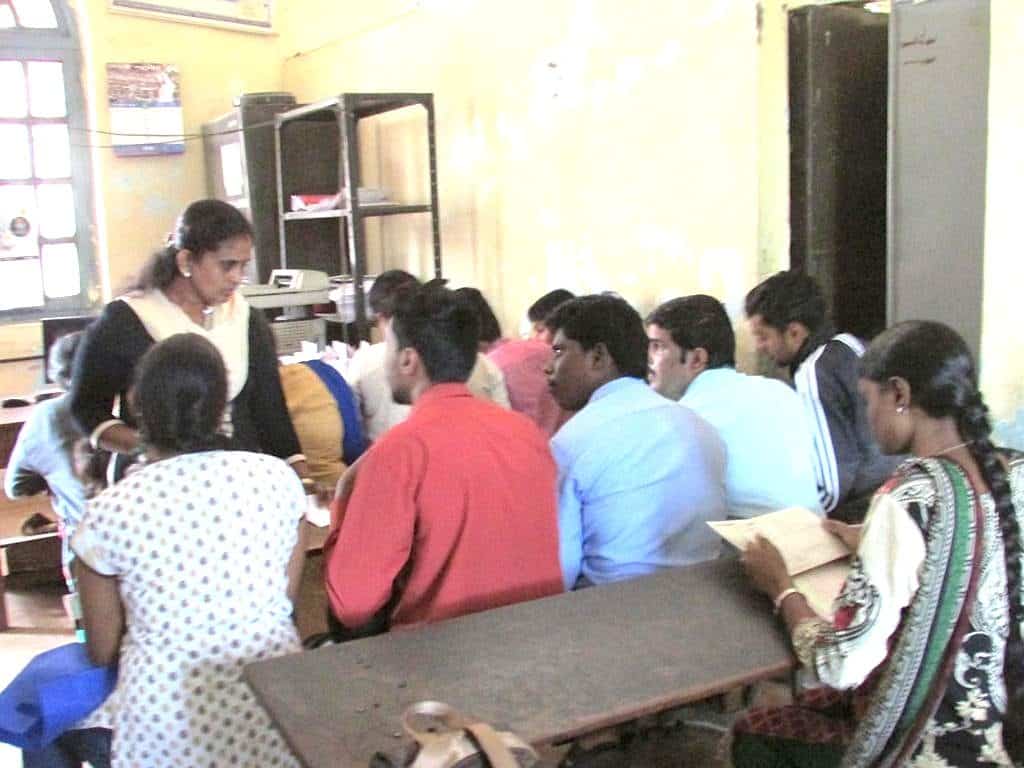
What is the scheme? The Yuva Nidhi scheme provides monthly financial assistance to degree and diploma holders who have not got a job within six months of completing their education. The assistance will be for a maximum duration of two years. Degree holders will get financial assistance of Rs 3,000 per month and diploma holders will get financial assistance of Rs 1,500 per month. If the beneficiaries get a job within this two year period, they will have to declare this and the assistance will stop.
When? The dates for the scheme have not been announced yet.
Who is eligible? The scheme only applies to youth who are domiciled in Karnataka, i.e. have a permanent Karnataka address on their government issued ID cards.
How to access: Not yet announced
Good and full clarity